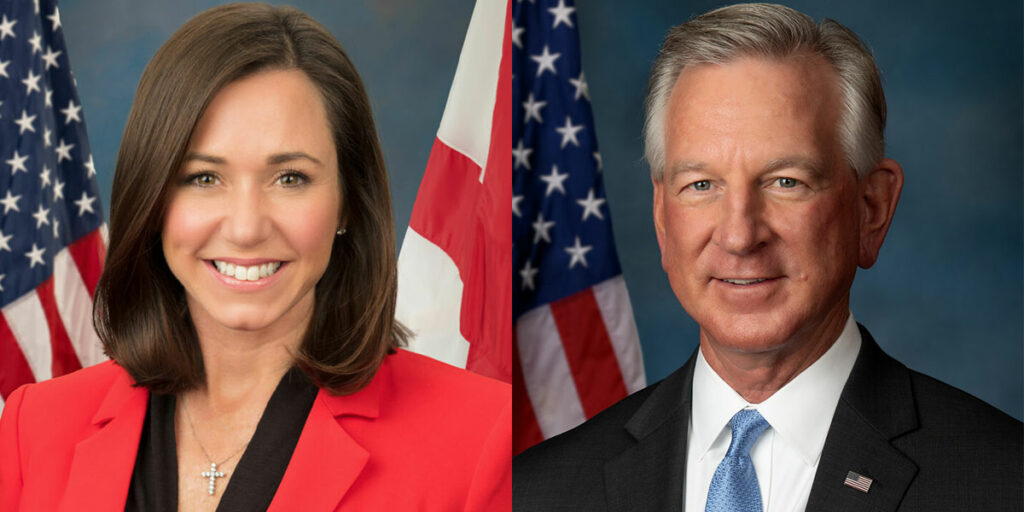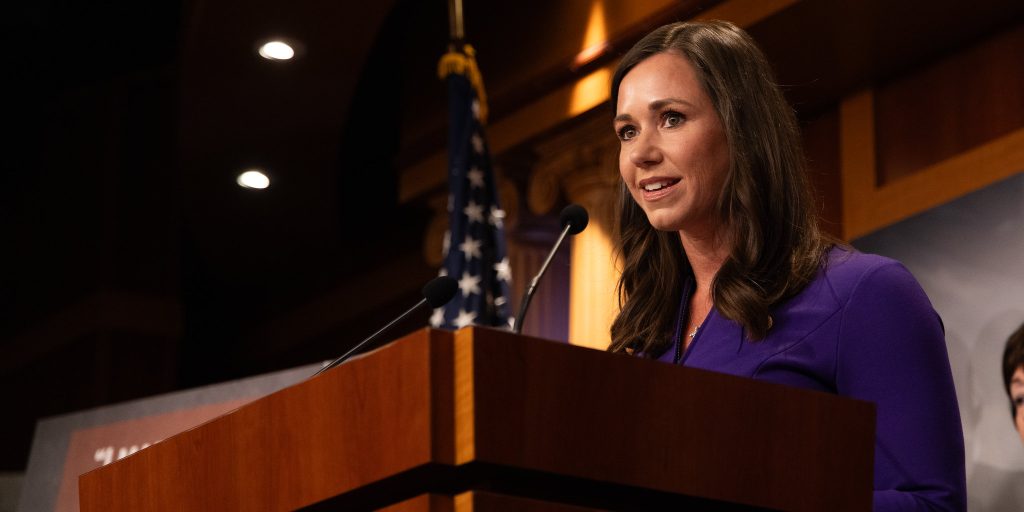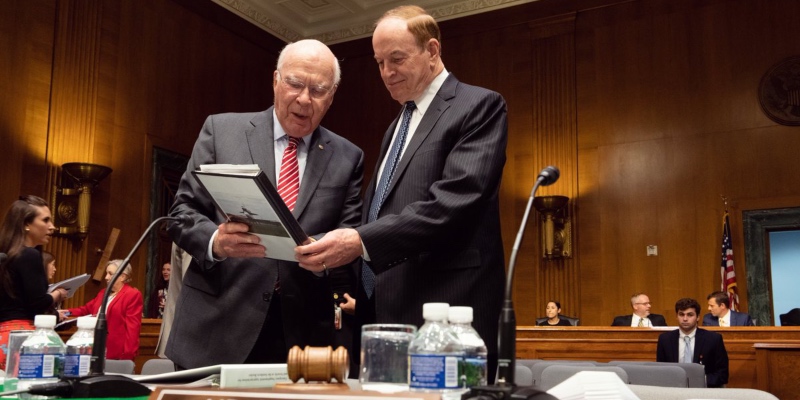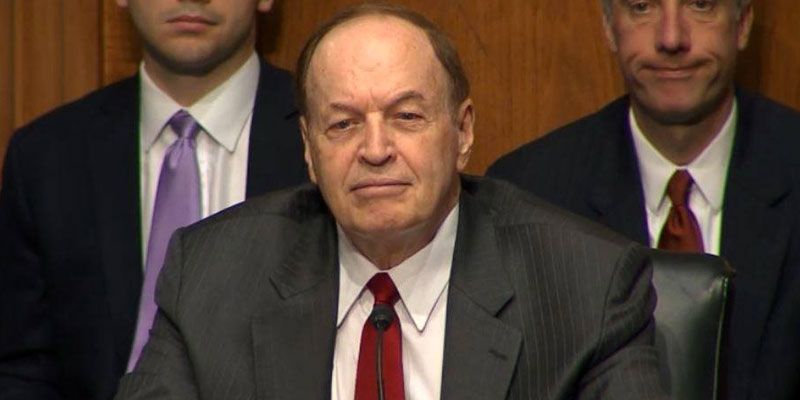
Voters swept Republicans into the majority in the U.S. Senate last week, but it will still be a couple of months before the transition of power actually takes place. The 114th Congress will be seated January 3, 2015. Until then, Democrats remain in the majority during what is commonly referred to as a “lame duck” session.
But when Congress does reconvene next year, Alabama’s U.S. Senate delegation will be the envy of the nation.
Don’t believe us? Here are 5 reasons why:
1. Seniority
Yellowhammer has written about this multiple times, but in the U.S. Senate where seniority is paramount, Alabama’s delegation is incredibly well positioned.
Alabama’s senior U.S. senator Richard Shelby will be the 7th most senior member of the body when it convenes in January of 2015.
Alabama’s junior U.S. senator Jeff Sessions will be either the 18th or 19th most senior member of the body, depending on whether Democratic senator Mary Landrieu holds on to her hotly contested seat in Louisiana, which looks unlikely at this point. (Editor’s note: Landrieu’s runoff takes place Dec. 6.)
That means the average seniority of Alabama’s senators will be either 12.5 or 13. The only senate delegation that will eclipse that level of seniority is California’s, whose two senators will have an average seniority rank of 10.5, but both of them are Democrats and will now be in the minority.
2. Sen. Sessions will be the Chairman of the Senate Budget Committee
The Budget Committee sets the number for how much money the federal government has to spend. At a time when the U.S. federal debt is just under $18 trillion, having a conservative warrior like Sessions crafting the budget is a dream scenario for many Republicans. But there will be some interesting behind-the-scenes dynamics worth watching.
Sen. Rob Portman (R-Ohio) remains a key Republican player when it comes to budgeting due to his time as the Director of the Office of Management and Budget during the Bush Administration. Sessions has an opportunity to carve out his space as the go-to-guy on budgeting matters if he positions himself well, which he is unquestionably capable of doing. But being in the minority Party has afforded Sessions the luxury of laying back and throwing stones at Democrats’ irresponsible budgeting practices. It will take some maneuvering to maintain his brand while working to build consensus around his own budget. He will have to work closely with GOP leadership (i.e. Mitch McConnell, et al) to get a budget resolution passed.
However it plays out, every state would love to have one of their senators sitting atop the committee that crafts the Federal Budget.
3. Sen. Shelby will be the Chairman of the Senate Committee on Banking, Housing & Urban Affairs
Shelby is a financial regulatory reform champion.
We’re several years into the implementation of Dodd-Frank, the sweeping — many conservatives would say onerous — financial regulatory reform package passed by Democrats in response to the so-called “Great Recession.” Shelby taking over the Banking Committee’s top post likely means he’ll be digging into Dodd-Frank and calling out some of the more egregious regulations that have been imposed on the U.S. financial sector.
Shelby will also likely place himself at the center of housing finance reform, an issue that doesn’t grab headlines but is incredibly important for the U.S. economy. Close to 100 percent of the U.S. mortgage market is currently backed by the federal government. A bipartisan group on the Senate Banking Committee has been trying to reform the government’s role in the market, but many conservatives don’t believe their efforts go nearly far enough and leave the government no less involved than they were prior to the 2008 crash. With Shelby guiding the process, he will have the opportunity to build consensus around a more conservative proposal, and close the gap between the Senate and the House, where Financial Services Committee Chairman Jeb Hensarling, R-TX, has been pushing major reforms.
Having an expert negotiator and dealmaker like Shelby in charge of the powerful Banking committee is the kind of clout most states can’t even hope to attain in the next Congress.
4. Neither of them want to run for president
This may seem like a strange, out of place bullet point on this list, but don’t underestimate its significance. Almost every U.S. Senator wants to be president — or at the least thinks they should be. Alabama’s Senate delegation is the exception to that rule.
Sen. Sessions is one of the few senators who actually has people calling for him to run but dismisses the possibility. The “reluctant leader” quality that Sessions exudes isn’t an act. It’s the real deal.
Sen. Shelby is one of the few senators who’s such a fundraising juggernaut that he could have no doubt waged a credible presidential effort at some point in his career. But at 80-years-old and returning to his powerful perch atop the Banking Committee, he harbors no ambitions of a national campaign.
The fact that neither of Alabama’s senators want to run for president allows them to simply do what they think is right for their state and for the nation, rather than demagoguing for attention or having to consider how their votes will affect a future presidential bid.
5. Their influence on U.S. economic policy will be huge
In addition to Sen. Shelby’s position atop the Banking Committee, he will also be the No. 2 Republican on the Appropriations Committee, which will be chaired by Mississippi Sen. Thad Cochran.
The Appropriations Committee decides how the federal government spends the money that makes it into the budget.
The way that the Budget and Appropriations committees interplay with each other creates a unique situation in which Alabama’s senators will play leading roles in shaping U.S. economic policy. One Alabamian (Sessions) will help set the number for how much money the federal government has to spend, and another Alabamian (Shelby) will play a major role in deciding how the money is spent.
Follow Cliff on Twitter @Cliff_Sims












